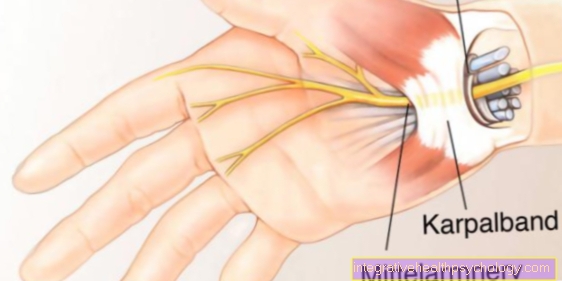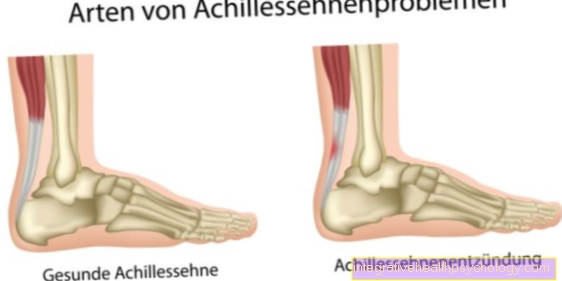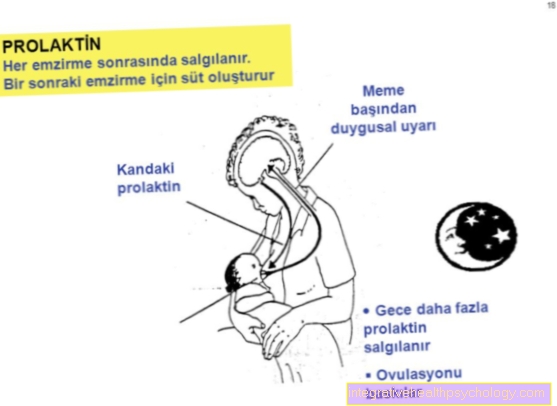Care level 3
definition
The care levels have existed since January 1st, 2017 and have replaced the previous care levels. Care level 3 is given to those in need of care with a "severe impairment of independence". Those in need of care need help with basic care around the clock and regular household support.
In addition to new applicants, people with dementia with previous care level 1 and those in need of care with care level 2 also receive care level 3.
Get general information about Care level and care levels.

What requirements do care level 3 meet?
In order for those in need of care to receive care level 3, certain requirements must be met. After an application has been submitted to the long-term care insurance, an expert from the MDK (Medical Service of the Health Insurance) or, in the case of privately insured persons, an expert from MEDICPROOF examines the need for care of the applicant based on the "New Assessment Assessment" (NBA). This is a test procedure with which six modules are examined. The reviewer awards points for the following areas, the percentage of which is different in the total number of points:
-
Mobility (10%)
-
cognitive and communication skills (7.5%)
-
Behaviors and psychological problems (7.5%)
-
Self-sufficiency (40%)
-
Coping with and independent handling of illness and therapy-related demands and stresses (20%)
-
Organization of everyday life and social contact (15%)
In total, up to 100 points can be achieved in the test procedure of the “new assessment assessment”. In order to receive care level 3, the person concerned must achieve a minimum of 47.5 and a maximum of 69 points in the test procedure. The classification in the respective care level is carried out by an expert from the MDK or Medicproof. People in need of care with care level 3 suffer by definition from a severe impairment of independence. The prerequisite for care level 3 are correspondingly serious deficits in the modules mentioned, such as in self-care or mobility.
What benefits do you get with care level 3
People in need of care with care level 3 are entitled to various benefits from the care fund. This includes
- Care allowance and care benefits in kind,
- Care and relief services,
- professional short-term care,
- inpatient care,
- Prevention care,
- Day and night care and
- Services such as medical aids, nursing aids or grants for adapting living space.
People with care level 3 receive € 545 per month care allowance for home care by relatives or friends.
You are also entitled to care benefits in kind amounting to € 1,298 per month. This means nursing care by an outpatient nursing service.
In addition, those in need of care with a recognized level of care 3 receive the new uniform relief contribution worth € 125 per month. This relief contribution can be used for care or relief services. This means care groups, everyday companions, shopping or household help and the like. If, for example, professional short-term care is required in a nursing home after a hospital stay, the person in need of care receives a grant of up to € 1,612 for one month per year.
People in need of care with care level 3 are also entitled to preventive care. If the caring relative is unable to care for the person in need of care due to vacation or illness and cannot care for the person in need of care, the person in need of care receives a grant of up to € 1,612 for outpatient care service for 28 days a year.
There are also benefit rates for day and night care. This means care in a day-care facility. This includes € 1,298 per month. Caregiving relatives can continue to work and know that the person in need of care is in good hands as a day care guest.
Inpatient care in a nursing home is subsidized with up to € 1,262 a month.
There are also additional benefits for people in need of care with care level 3 who are cared for at home. You are entitled to € 40 per month for medical aids such as disinfectants or disposable gloves. For a home emergency call system, a one-time fee of € 10.49 is available for connection and € 18.36 per month for operation. The nursing care fund supports the adaptation of the living space with up to € 4,000 once. This means, for example, measures such as converting a bathtub into a shower or a stair lift. Advice and counseling visits for a living space conversion or for better nursing care are available free of charge to those in need of care with care level 3. In addition, caregiving relatives are offered free care courses.
You can read more interesting information on this topic under: Domestic care
What remuneration do you get when caring as a relative?
People in need of care can decide whether they want to be cared for at home by family or friends or in inpatient facilities such as a nursing home by professional nurses. If a person in need of care with care level 3 is cared for at home, the care funds grant the caring relatives or friends a remuneration, the so-called care allowance. If you, as a relative, care for someone in need of care with care level 3, you receive € 545 per month care allowance.
How do I apply?
You can apply for a degree of care in different ways.
One option is to call the relevant care insurance fund. The long-term care insurance funds are part of the health insurance companies. This means that if I am insured with TK or AOK, I can find my long-term care insurance there. You can call your health insurance company and be connected to the long-term care insurance company. The application for a care level can be made orally in a conversation with an employee of the care insurance fund.
In addition, you can send an informal application to the long-term care insurance by post.The letter should contain the name of the person in need of care, their address and insurance number and, for example, the following sentence: "I hereby apply, XY, the benefits of long-term care insurance and ask for a short-term assessment." The letter can be signed by the insured person or his or her authorized representative and sent to the health insurance company or long-term care insurance company. If you send the letter to the responsible health insurance company, they will forward the document to the responsible long-term care insurance company.
There is also the possibility of seeking help from a care center. These can be found in many cities in Germany. There are staff in a care support center who help with the application process.
You may also be interested in our next article: Levels of care in dementia
Where do you apply?
The application for a care level is sent to the responsible care fund. The long-term care insurance funds are responsible for social long-term care insurance and are part of the health insurance companies of the same name. People in need of care or their authorized representatives can contact the long-term care insurance company or health insurance company by post or telephone. The health insurance company can easily connect you to the responsible long-term care insurance company or forward documents such as the application.
Short term care
It can happen that a person in need of care with care level 3 needs short-term intensive care by professional caregivers. Short-term care in a nursing home can be claimed after a hospital stay. The long-term care fund subsidizes short-term care with € 1,612 for a maximum of 28 days per year.
After a hospital stay
If a person in need of care with a recognized care level 3 needs intensive care in a nursing home after a hospital stay, he is entitled to short-term care for up to 28 days. If, on the other hand, you only need care after a hospital stay, you are also entitled to benefits from the long-term care insurance. In this case, an application must first be submitted to the long-term care insurance for assessment in order to receive a long-term care level. Afterwards, care services and care allowances can be used.
Our next article could also be of interest to you: Fall in old age





























